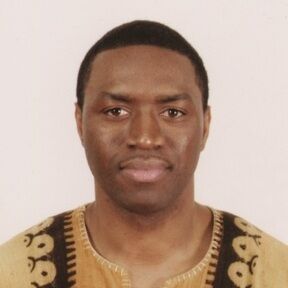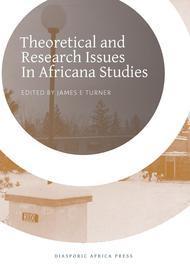

Diasporic Africa Press, Inc.
Diasporic Africa Press (DAP) is an independent, nonprofit publisher of serious non-fiction books about the African world. Founded in 2010, DAP continues to provide adult and young readers with books in African world cultures, histories, and literature found nowhere else.
Shop Now! See Our Latest Books!
Theoretical And Research Issues In Africana Studies
The year of 1980 marked a pivotal turning point in the American political landscape. David Harvey writes, "Future historians may well look upon the years 1978-1980 as a revolutionary turning-point in the world's social and economic history... revolutionary impulses seemingly spread and reverberated to remake the world around us in a totally different image." Black activists and intellectuals also felt the ground moving beneath their feet, as many gradually shifted from an all out advance towards liberation to a posture concerned with what James Turner described as "the preservation of the modest gains made by African Americans over the last decade." The previous decade witnessed an obvious waning in the Black liberation movement, a slew of high-profile manhunts, arrests, court cases and outright criminalizing of radical activists, the unearthing of Cointelpro, the blooming of the liberation movement in Southern Africa, a taxing debate around various articulations of Marxism and Black nationalism, the full swing of feminism, and a full decade of Africana Studies, which also meant institutionalized space to foster such discussions. It was these changing times that provided the context for the important gathering of Black activists and intellectuals in Ithaca, New York, during September 1980 at the Africana Studies and Research Center at Cornell, and the content for this book. Bound together by the dual purposes of both assessing the road traveled and preparing for the journey ahead, the ensemble in attendance gathered to ponder, “the Next Decade”—as the conference theme spelled out plainly.
A quick glance at the conference’s list of attendees demonstrates the extraordinary sphere of activity that was the Africana Studies and Research Center at Cornell. Participants and attendees at this historic meeting included Toni Cade Bambara, Lerone Bennett, Johnella Butler, John Henrik Clarke, Gayla Cook, Louis Farrakhan, Hoyt Fuller, Ewart Guinier, Vincent Harding, Robert Harris, Stephen Henderson, Robert Johnson, George Kent, George Lamming, Tilden Lemelle, Bernard Magubane, Manning Marable, William Nelson, William Sales, Michael Thelwell, Bettye Collier-Thomas, Eleanor Traylor, Ivan Van Sertima, Ronald Walters, Shirley Weber, Sylvia Wynter, Howard Dodson, William Strickland, and two of the visual artists featured in this book, David Bradford and Bertrand Phillips. This book is both a contribution to the historiography of the Black/African Studies movement and an intellectual treasure, representing the ideas and visions of many of the best minds at a crucial juncture in the African world.
About Us

Kwasi Konadu
Editor-in-Chief and Director
Diasporic Africa Press (DAP) is a nonprofit and global publisher of serious books about the African world, specializing in histories, cultures, literature and language. Targeting adults and young readers, our books are grounded in scholarship, written for accessibility, and designed to support discussion, teaching, and research.
On this virtual storefront, books are divided into four categories: African World Cultures, African World Histories, African World Literature, and Young Readers Series. Rights and permissions are handled by Copyright Clearance Center. For desk copies, faculty can email us (support@dafricapress.com) with the relevant details. For all other matters, email us, but know that all sales are final except transactional errors, no refunds are stated or implied, and we do not accept returned books, unless damaged in transit.
Prospective authors can email us their proposal, granted it is organized around and addresses the following questions in plain language:
The Overview: So what? Who cares? And who are you? Target Audience: Whose problems are you solving? Who will benefit most from your book? Who do your readers trust today? Competing Titles: How does your book compare to other offerings (and authors) on the market? Marketing Plan: How will you spread the word about your book before and after publication—without the publisher’s help? About the Author: Why are you the best person to write this book? What is your authority or credibility in the market? Sample Chapters: Have you demonstrated that you can deliver on the promise the proposal makes? Is your writing accessible to the intended readership? Please include a sample chapter representing your best writing; all proposals and projects are peer-reviewed.
We look forward to your readership and hope you consider supporting a translation, a project, a series, or the operating costs of the press. All profits are reinvested into new projects. Your generous, tax-deductible contributions help make the work of the press possible.
